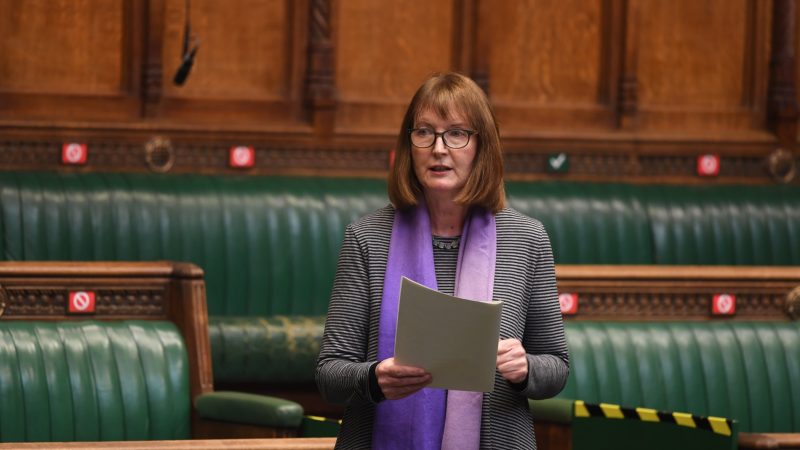
No sooner have we come to terms with the very difficult – if understandable – news that Margaret Hodge is standing down from parliament, now we know that Harriet Harman will no longer be in parliament after the next election. I have had to write it down to believe it. She will leave behind her not just a legislative legacy but a movement of women in parliament who have looked to her both for political leadership and care. Her nearly 40 years span generational change that is remarkable and has fundamentally altered not just the Labour Party, but all the major political parties in our country.
We never say it, but we are all Harmanites now. In 1982, to believe that the House of Commons ought to be 50:50 men and women would have marked you out as a radical. To take steps to deliver it would be considered ‘brave’. To do that whilst rising to membership of the cabinet, elected deputy leader of Labour, and one of our country’s most respected legislators should have been impossible. Harriet makes it look easy.
Recent documentaries may have focused on the changes that men in politics made during Labour’s wilderness years, but nobody should doubt what Harriet did. Although it seems incredible now, childcare and flexible working simply weren’t political issues before her election. Now even Tory leaders fall over themselves to say they have the most family-friendly agenda. None of them were the person who made sure Labour’s flagship New Deal offered a chance to (mainly women) lone parents, or brought about the first ever national childcare strategy. Harriet – along with brilliant colleagues like Margaret and others – was.
Her years doing the leg work in the labour movement meant that all-women shortlists have won the day. There is no distance she hasn’t travelled to make the case for progressive politics. I remember being terrified getting on a tiny plane with her on a trip to Cornwall in the deputy leadership election of 2007. Other candidates didn’t make it as far. Harriet’s view was clear: “Ally. There are Labour members in every corner of our country. They all deserve our attention and care.”
Very few parliamentarians will leave the Commons with the law in a fundamentally difference place than how they found it. That Harriet made sure the Equality Act was passed at the end of Labour’s time in government in 2010 capped a huge shift: from individual rights to a collective duty to promote equality. It frames our country’s approach to equality so distinctly it ought to be know as the Harman doctrine.
But I know reading this she will say that’s not right. She will say that it took whole groups of people campaigning together. She will say she never did anything alone. And she would be right. From childcare to the rights of women giving birth in countries without proper healthcare, there will be campaigners and activists all over who will know that they have been a part of Harriet’s campaigns.
That’s because Harriet’s real legacy is the stuff you can’t see. You can’t see her looking beyond obvious factional politics to stand up for women behind the scenes, whatever the argument. You can’t see how bad a place parliament has been for women and how Harriet built alliances to change that, whilst getting on with the day job.
Women are held to a higher standard in politics, have to fight harder to get heard, and bear the cost of changing politics whilst also doing the political work their constituents require. The way to deal with that is for women to work together and Harriet is the absolute queen of building that alliance. One of my most favourite memories of my time in Harriet’s local party during my time living in London was when she invited Diane Abbott to be the speaker at our annual dinner. Arguably from different wings of Labour, but two ground-breaking women.
A final point. There are few people in politics as unquestionably kind as she is. At the worst times, Harriet is there. And in 2010, after we lost, she switched focus so quickly and was incredibly effective, while almost everyone else was losing their heads.
I watched her read at the funeral of a constituent killed in the Lakanal House fire, the precursor disaster to Grenfell. To this day, I have no idea how she did it with such composure and every person in the room was comforted by her. Harriet ends her parliamentary career as the Mother of the House of Commons. There is no more fitting title.




More from LabourList
Paul Nowak column: ‘Labour must focus on the basics’
‘Labour’s two-child cap victory rings hollow while asylum-seeking children remain in poverty’
SPONSORED: ‘Unlocking pension power to boost the UK’s fortunes’